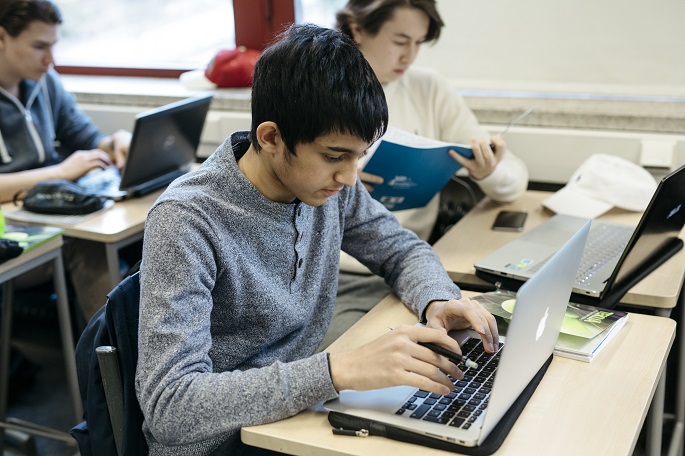Increasing inequality affects wellbeing at school
Published : 24 Mar 2022, 02:47
Inequality among the pupils and students has increased at schools and the background of the parents increasingly affects students wellbeing, according to a study.
The extensive study carried out in 2006–2019, encompassing nearly one million pupils and students, looked for reasons for both burnout and wellbeing, said the University of Helsinki in a press release on Wednesday.
Academy of Finland Professor Katariina Salmela-Aro and her research group investigated trends in school burnout and related sociodemographic factors with the help of a school health survey dataset.
Such factors can include area of residence (urban vs rural), gender, social status and ethnic background.
The study was conducted in Finnish general supper secondary schools and lower secondary schools. The Finnish Institute for Health and Welfare collected the school health data for the study.
“This study of nearly one million young Finns demonstrates that inequality has increased,” Salmela-Aro said, adding, “the parents’ background increasingly affects their wellbeing at school.”
The study shows that school burnout increased among girls, and that this trend has accelerated since 2015.
Several school reforms have been carried out in Finland that may have potentially had an impact. For example, redesigns to the entrance examination systems of higher education institutions have increased pressure in general upper secondary school.
The competition for a place in further education has continued to intensify. For girls, attendance in school and good academic performance are very important, and they are more affected by the pressure. Competition among peers intensifies the pressure further.
Parents’ high level of education is a resource for boys in particular. The central importance of parental education to both academic performance and school wellbeing is beginning to come into view also in Finland.
Parents with a higher education are better positioned to support their children, a factor that can be seen to protect especially boys.
“Seeing burnout among girls increase particularly in urban areas was another important finding. Pupils and students are more competitive and performance oriented in urban schools, and this is reflected in particular in girls’ school burnout and feelings of inadequacy.”
The study also shows that parents’ unemployment and immigrant background are associated with increased burnout.
Children can stress about the lack of money, with their academic performance suffering, but it may also be about the immigrant paradox, according to which immigrant parents put severe pressure on their children. According to Salmela-Aro, further research on this is needed.
“It appears that young people from immigrant backgrounds experience more burnout than the native population.”
The study examines trends before the pandemic, which, according to Salmela-Aro’s research, has further accelerated school burnout and inequality as well as produced results that reflect the genders. It is important to identify these trends that happened before the pandemic, which the exceptional circumstances have subsequently greatly accelerated. In Helsinki, the pandemic has even doubled school burnout among girls.
The article entitled ‘School burnout trends and sociodemographic factors in Finland 2006–2019’ by Katariina Salmela-Aro and her research group was published in the Social Psychiatry and Psychiatric Epidemiology journal.


